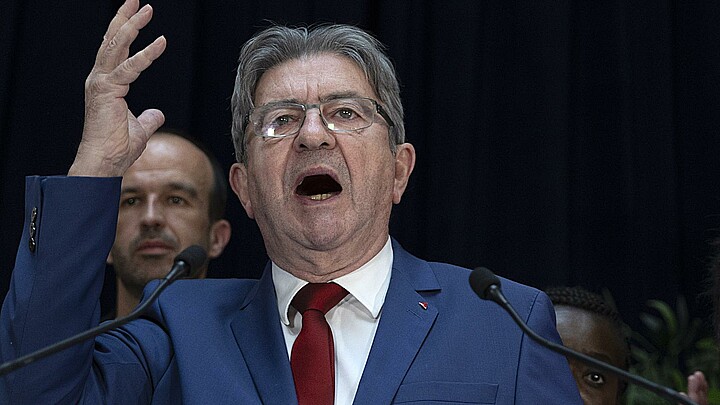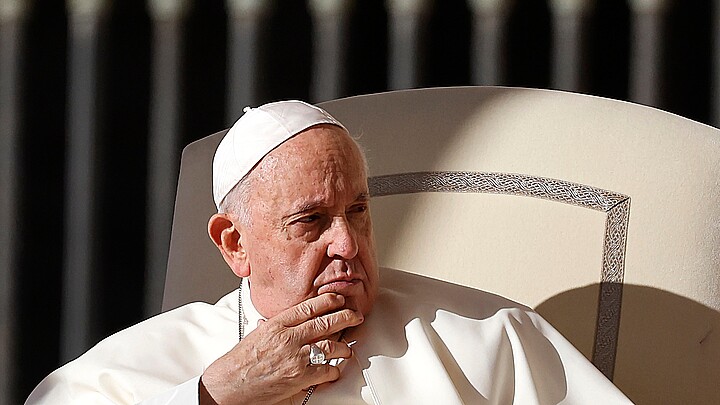Politics
U.S. removes Spanish Basque separatist Fatherland and Liberty (ETA) from Foreign Terrorist Organization list
The Department of State announced on Friday that it would revoke the designation of five Foreign Terrorist Organizations (FTO), including the Spanish separatist organization Basque Fatherland and Liberty (ETA). The group is still considered a Specially Designated Global Terrorist Group (SDGT).
May 21, 2022 10:56am
Updated: May 21, 2022 1:45pm
The Department of State announced on Friday that it would revoke the designation of five Foreign Terrorist Organizations (FTO), including the Spanish separatist organization Basque Fatherland and Liberty (ETA).
Euskadi Ta Askatasuna (ETA) is a Basque nationalist and separatist terrorist organization from the Basque Country. The Basque Country is a region in the north of Spain and southwest of France with a population of more than 2 million people. However, the Basque have a strong national identity and culture that differs in many aspects from the rest of Spain.
ETA was formed by dissidents of the Basque Nationalist Party in 1959, during the dictatorship Francisco Franco’s which repressed Basque culture and heritage. The group’s original goal was to “liberate the Basque country from Spain” and seek self-determination, according to Euronews.
To promote the region’s independence and revolution, the group started setting off explosives around Spanish cities. Although their first acts of terrorism were not so successful, in 1962, the group organized its first assembly in Bayonne, France, where it rebranded itself as a revolutionary group.
By 1968, the group had already murdered a handful of people. But in December 1973, ETA militants successfully assassinated Spanish Prime Minister Luis Carrero Blanco. Subsequently, the group began placing bombs at cafes, parked cars in the middle of busy streets, and in front of government buildings, causing severe damage to cities and hurting the people living there.
In 1997, the group kidnapped and murdered the counselor of Ermua, Miguel Angel Blanco, sparking a wave of protests on the streets calling to end ETA’s violent acts.
ETA declared a permanent ceasefire in 2006, but broke it soon after by setting off a bomb at a terminal at Madrid’s international airport.
In 2008, several ETA leaders were arrested, and negotiations were held between the group and the Spanish government of Jose Luis Rodriguez Zapatero.
"During the Franco era, ETA benefited from a sort of aura among part of the population that was opposed to the regime," ETA’s historic leader Josu Urrutikoetxea told AFP. "But then rejection of the armed struggle did not stop growing, especially after 1995 when ETA decided to expand its targets to include members of civil society."
"Polls showed that even among separatist voters, support for ETA had dropped considerably and become a minority," he added.
On October 20, 2011, ETA announced in Basque newspapers that it was ceasing its activities.
"ETA has decided to declare a permanent and general ceasefire, which can be verified by the international community," the group published at the time in the newspaper Gara.
A few days later, ETA announced that it was disbanding. However, it took them until 2018 to formalize their dissolution.
The U.S. added ETA to its foreign terrorist blacklist in 1997. The European Union, the United Kingdom, and Canada also classified the group as a terrorist organization.
Through bombings and assassinations, ETA has killed an estimated 800-850 people and injured thousands more. Countless others have been blackmailed and extorted by the group. Currently, there are more than 260 ETA members are imprisoned worldwide for these actions.
The Department of State reviews FTO designations every five years to ensure that the basis of the designation remains unchanged. According to its latest review, ETA is no longer engaged “in terrorism or terrorist activity and do not retain the capability and intent to do so. “
Despite revoking its designation as an FTO, ETA is still considered a Specially Designated Global Terrorist Group (SDGT), which means some U.S. transactional restrictions will remain in place under Executive Order 13224.
"In general, any transaction or dealing by a U.S. person in any property or interests in property of persons designated as SDGTs under or otherwise blocked pursuant to E.O. 13224," the U.S. Treasury Department reports."
Alongside ETA, the Department of State also removed Aum Shinrikyo, Mujahidin Shura Council in the Environs of Jerusalem, Kahane Chai, and Gama’a al-Islamiyya from the FTO list.










